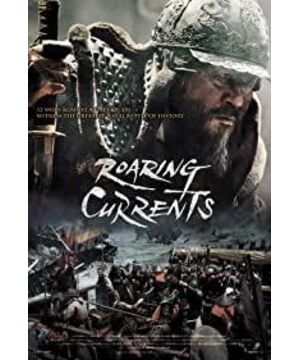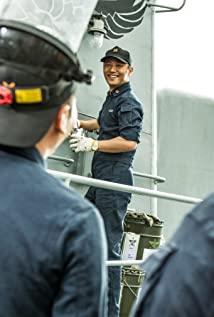After it was released in South Korea on July 30, it became another myth in the history of Korean film. It overwhelmed the 13.62 million viewers of the previous "Avatar", and finally settled at a record high of 17.6 million. More than four months later, it appeared in Chinese theaters, but it was not very popular, with a single-day box office of only more than 2 million. This contrast, a popular explanation, is probably the national sentiment.
In the battle of Mingliang, Yi Sun-sin repelled more than 130 Japanese warships with 12 Panya boats. This is the main story line of the movie and the biggest gimmick of the movie. To win more with less, or the North Korean navy to win more with less, clearly ignited a fire in the hearts of every South Korean audience. Not to mention, the two most prominent Asian markets that can deal with Hollywood right now, one is Japan and the other is South Korea.
Back to the movie itself. "The Battle of Mingliang" is not very good, but the victory lies in its steady and steady fight. This is also the reason why Korean movies are getting better and better, because they do well in genre movies. "Mingliang Sea Battle" is a martial arts drama, and the focus is naturally on the naval battle that lasted for an hour in the film. Naval battles are not easy to shoot, and the difficulty is first in the special effects. This, the special effects department of this film took half a year to complete. It is 100% made in Korea. For ordinary audiences, it does not lose to Hollywood blockbusters. It reflects the overall industrial standard of Korean movies. Another difficulty, of course, is the sense of hierarchy of naval battles. This, "Mingliang Sea Battle" is also available. There are psychological warfare, hand-to-hand combat, invitation to the urn, and Jedi counterattack. In the end, they can be summed up as "ups and downs". But as soon as the fighting game was played from start to finish, I got tired of looking at it,
so several literary dramas in "Mingliang Sea Battle" came to light. This film gave an idea and a reason Yi Sun-sin persuaded himself that "great fear can also make great courage." Therefore, the first half of the film describes the disadvantages of North Korea and the disadvantages of Yi Sun-sin. . We saw the fear in the protagonist's heart, and this fear was the pavement for the ultimate reversal. Coupled with Choi Min-sik's acting skills, a good-looking war movie, it was like this.
As for the shortcomings of this film, of course, there are, for example, the handwriting of North Korean bows and arrows is too magical, or the pirate king Lai Dao Tong, who was solemnly sent by the other party, wrote that it is not on the same level as Yi Sun-sin. But these may also have been deliberately ignored by the director. Compared with logic, of course, the highlight is the highlight that hits the front figure. It's a pity that the director subtracted the first 20 minutes of literary play for the Chinese version. Perhaps these passages can make the subsequent great battles look more fierce.
The last line left by Sun-Shin Yi in the film is-"Such hatred, what should be done?" The so-called good war films are all anti-war films, and the high-pitched "Ningliang Sea War" can still stay like this. A room is really valuable. (By Yanran)
Originally published in "Guiyang Evening News"
View more about The Admiral: Roaring Currents reviews











